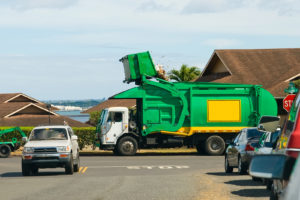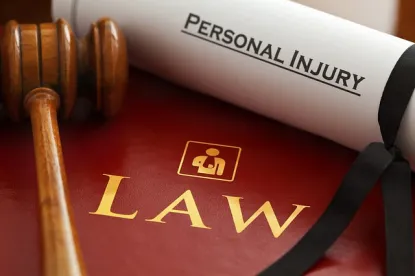Getting stuck behind a garbage truck is an experience that everyone has had at least once. As frustrating as this can be, it pales compared to the true dangers presented by these enormous vehicles. While garbage truck accidents may not come to mind when thinking about serious motor vehicle collisions, in reality, trash truck accidents are fairly common.
For example, according to one news report, there have been more than 2,000 trash truck accidents in Philadelphia over a span of just five years, costing taxpayers over $4.8 million. Surprisingly, very few of the drivers involved in these accidents were disciplined, even for accidents that were their fault. In fact, there were five drivers employed as trash truck drivers that had been in 12 or more accidents during their career.
Is the Garbage Truck Operated by a Private or Public Entity?
Most cities and counties across the United States provide waste pick-up services for residents. However, the specifics of how to set up these services are left up to the states. It is common for states to provide garbage pick-up services through a division of the county or city government. However, other states contract waste removal services out to a private business. This distinction can be very important when it comes to recovering after a garbage truck accident.

In most states, government entities are protected to some extent by government immunity rules. Government immunity is a legal doctrine that may prevent a government entity from being held liable for someone’s injuries. Every state’s government immunity rules are slightly different and are typically contained in a state’s “Tort Claims Act.”
For example, some states allow accident victims to pursue a wide variety of cases against the government but cap, or limit, the amount of damages that the injured party can receive. Other states limit the type of cases that an accident victim can bring against the government. And some states limit the type of cases as well as the available damages.
Given this reality, finding out whether the waste removal company was a public or private entity is an important first step in pursuing a garbage truck accident claim. The next step would be reviewing the state’s government immunity rules to see whether a claim is viable.
Was the Trash Truck Driver Negligent?
Another hurdle that can come up in New Jersey garbage truck accidents is proving that the truck driver was negligent. Before an accident victim can recover compensation for their accident-related injuries, they must prove that the other party was at fault. This is often done by presenting evidence that the other driver violated a traffic law or was otherwise negligent.
When it comes to trash truck accidents, this can be a little more challenging. Depending on the type of truck, most garbage trucks have to pull up close to the curb to collect a resident’s trash. However, doing so may be impossible if the driver is constrained by the normal traffic rules. Thus, some cities and states don’t require trash truck drivers to follow all the rules of the road.
For example, a garbage truck may be allowed to do any of the following:
-
Drive the wrong way down a one-way street;
-
Drive or stop in a bike lane;
-
Drive on the wrong side of the street; or
-
Straddle the center median.
Understandably, when a garbage truck engages in any of these permitted – but dangerous – actions, it catches other drivers, pedestrians, and bicyclists off guard. However, if the garbage truck driver is allowed to drive down a one-way road, it may be difficult to prove that they were negligent in doing so.
A related issue involves the potential fault of the accident victim. Every state has different rules when it comes to determining which accident victims can recover financial compensation for their injuries. Most states use a form of comparative fault, which allows partially at-fault accident victims to recover from other at-fault parties at a reduced rate. For example, assume a pedestrian is hit by a trash truck and suffers $300,000 in damages. If the jury were to find that the pedestrian was 30 percent at fault because they were not looking where they were going at the time of the accident, the pedestrian would only recover $210,000 (the total amount of damages, less 30 percent).
Given the complexities involved in these cases, those who have recently been injured in a trash truck accident should reach out to a dedicated New Jersey personal injury lawyer for assistance on the type and amount of compensation you are eligible to recover.




 />i
/>i
